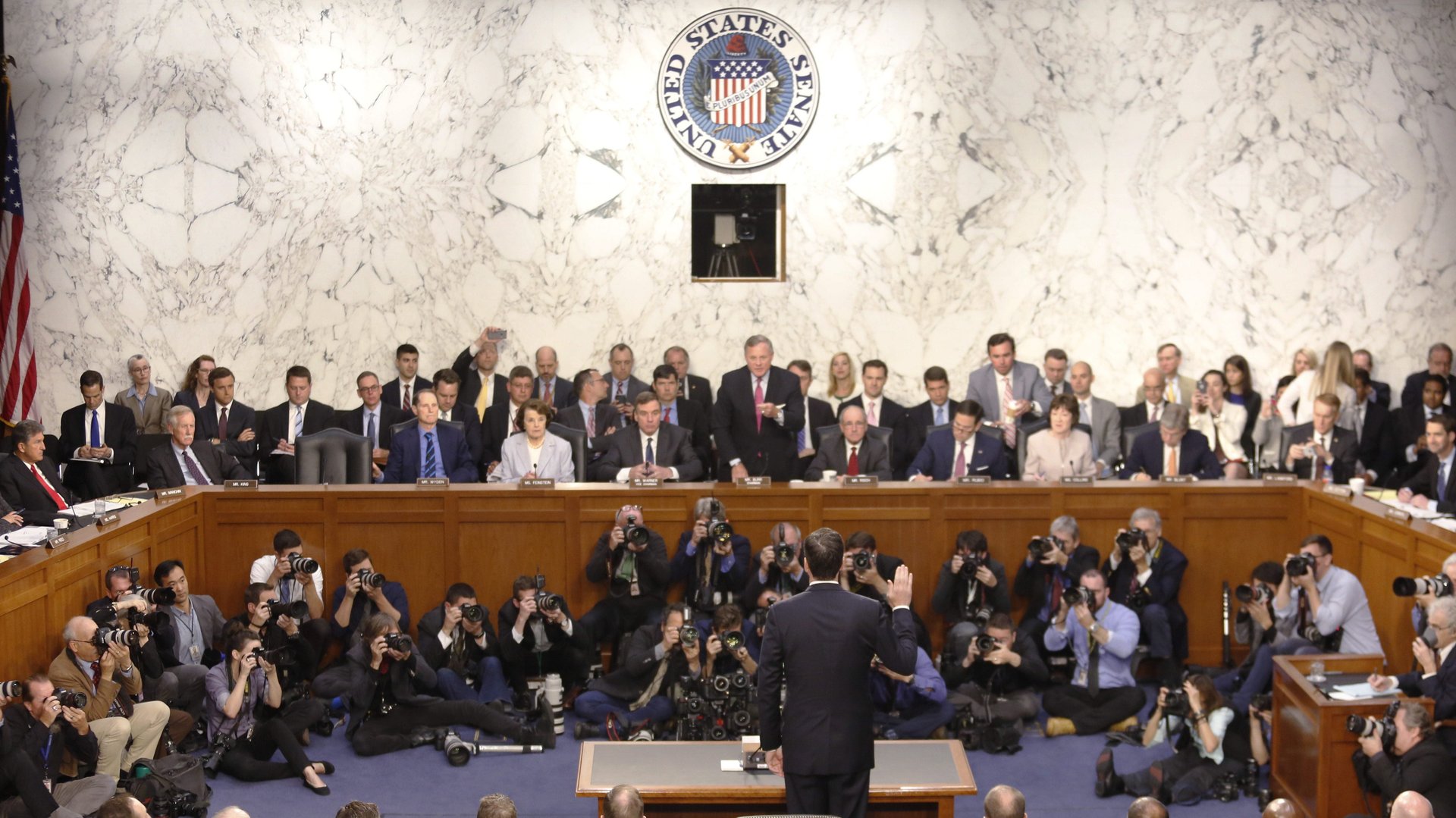US congressional hearings have been turned from a vital part of democracy into a partisan weapon
Once upon a time, public congressional hearings were a means of helping Americans better understand the workings of their government. But the Trump administration and its alt-right allies, aided by the power of the internet, is distorting their role, turning them into fodder for misinformation instead.


Once upon a time, public congressional hearings were a means of helping Americans better understand the workings of their government. But the Trump administration and its alt-right allies, aided by the power of the internet, is distorting their role, turning them into fodder for misinformation instead.
US attorney general Jeff Sessions testifies today (June 13, 2:30pm EDT) in front of the Senate intelligence committee. It’s the latest in a series of hearings to examine the evidence that led US intelligence agencies to declare unequivocally in January that Russia interfered in the 2016 presidential election and start probing whether the Trump campaign colluded with it. Sessions is expected to answer questions about his own meetings with Russian officials before president Donald Trump took office, and whether he was involved in Trump’s abrupt firing of former FBI head James Comey in February.
The ultimate goal of the hearings is to “create a picture for the American people of what happened in this election and what would happen again” if measures aren’t taken to address the problem, one congressional staffer explained. Instead of painting a clear picture, however, the hearings have served as a Rorschach test for Americans’ already entrenched political beliefs—right and left see in them whatever they want to see.
After Comey testified June 9 that Trump had invited him for dinner, alone, in the White House, asked him for “loyalty,” and suggested he go easy on former national security adviser Michael Flynn, most mainstream media outlets and many national-security experts (including plenty of Republicans) heard alarm bells. Whether Trump’s actions, including Comey’s firing, count as obstruction of justice has been the subject of heated debate among legal, political, and security experts since.
Trump, his supporters, and right-wing media such as Fox News and Breitbart, on the other hand, declared Comey weak. They used selective quotations to claim that his testimony vindicated Trump (it did nothing of the sort), and demanded he be investigated for leaking information to news media. Russia’s role in the election, the point of the hearings, was lost entirely.
The Trump administration and some of the right-wing media are creating a “Putinesque alternate reality,” said John Schindler, a former National Security Agency intelligence analyst, said after Comey testified last week. Their commentary didn’t “look like they saw the same Comey testimony that I did,” he said. Instead, their point of view so far has seemed to be: “Nothing happened to cause the president’s arrest today so we’re winning, we’re vindicated, and it’s a Democratic plot.”
This polarization goes much deeper than just the issue of Russian interference. Everything, from climate change to the impact of health-care reform, is now viewed through political lenses shaped by a deeply-divided news media and partisan social-media echo chambers. “We literally have two countries here,” said Christine Fair, a professor in the Security Studies Program at Georgetown University. “We are getting information from different places. That for me is the real crisis that we’re facing.”
That means there’s no way to solve problems. If we cannot agree that something is happening, asked Fair, “then how are we going to have a fact-based policy” to address it?
As with former FBI director James Comey’s testimony, that of Sessions will be broadcast live on the US’s major networks and some cable channels. As if anticipating another round of negative news analysis afterwards, Trump tweeted this morning: